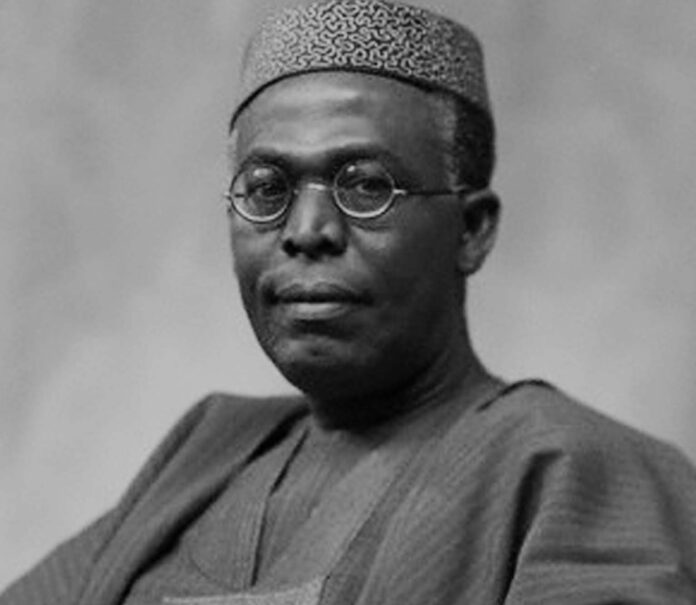Some of the Great Men Produced by the Nigerian State.
1. Chief MKO Abiola (August 27, 1937 – July 7, 1998)
Popularly known as Moshood Kashimawo Olawale Abiola. He was born in Abeokuta, Ogun State. His father had lost 22 previous children before he was born, which was the reason he was called “Kashimawo,” meaning, “let’s wait and see if he will not die.” He did his first business at age 9 by gathering firewood and selling them. He was a stammerer, who also had a music band of his own at age 15.

Chief MKO Abiola was the editor of his school, Baptist Boys High School magazine, while Nigeria’s former president, Chief Olusegun Obasanjo was his deputy. He graduated with a first class degree in Accounting from Glasgow University, Scotland. He contested and won the presidential election under the defunct Social Democratic Party (SDP) in 1993. The elections were annulled by former military Head of State, Ibrahim Babangida, an election widely believed to be free and fair. Moshood Abiola Polytechnic (MAPOLY) and Moshood Abiola Stadium, both in Ogun state and Abiola Gardens, a Housing Estate in Lagos state were named after him. He was a philanthropist.
Chief Olusegun Obasanjo
Olusegun Obasanjo, (born March 5, 1937, Abeokuta, Nigeria), Nigerian General, Statesman and a Diplomat. He was the first military ruler in Africa to hand over power to a civilian government. He served as Nigeria’s military ruler (1976–79) and, as a civilian, as President (1999–2007).
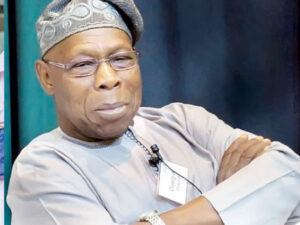
Obasanjo attended Baptist Boys’ High School in Abeokuta, in southwest Nigeria, and later worked as a teacher. Unable to afford college, he joined the army in 1958 and received officer training in England. Obasanjo rose quickly through the army ranks. During the Biafra conflict (1967–70) he was appointed to head a commando division that was stationed at the Biafran front in southeastern Nigeria. The conflict ended when Biafran forces surrendered to him in January 1970.
2. Sir Abubakar Tafawa Balewa (December 18, 1912 – January 15, 1966)
Sir Abubakar Tafawa Balewa, (born 1912, Bauchi, Northern Nigeria—died January 1966, near Ifo, Nigeria), Nigerian politician, deputy leader of the Northern Peoples Congress (NPC), and the first federal prime minister (1957–66).
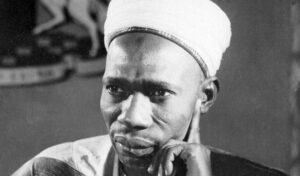
A commoner by birth, an unusual origin for a political leader in the NPC, he was a defender of northern interests, an advocate of reform and Nigerian unity. He was Nigeria’s first and only Prime Minister. He was called the Golden Voice of Africa because of his impeccable spoken English. He studied at the University of London’s Institute of Education. Abubakar Tafawa Balewa University, Bauchi was named after him.
3. Dr Nnamdi Azikiwe (November 16, 1904 – May 11, 1996)
Nnamdi Azikiwe, popularly referred to as “Zik“, was a Nigerian statesman, Governor General of Nigeria from 1960 to 1963 and the first President of Nigeria from 1963 to 1966 He was known as Chief Benjamin Nnamdi Azikiwe, the Owelle of Onitsha, Anambra state.
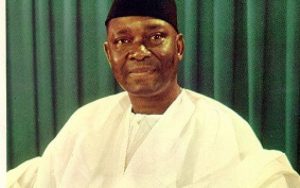
He was born in Zungeru, Niger state. He is from Enugu state. He had a BSc and MSc from Lincoln University and another MSc from University of Pennsylvania. He joined politics first with Nigeria Youth Movement (NYM) and later in 1944 founded National Council of Nigeria and Camerouns (NCNC). He was made the country’s ceremonial president on October 1, 1960. Chief Nnamdi Azikiwe was a Presidential candidate under the platform of the old Nigerian Peoples Party (NPP). Some of the things named after him are: Nnamdi Azikiwe University, Anambra state (UNIZIK) and Nnamdi Azikiwe International Airport, Abuja were named after him.
4. Sir Ahmadu Bello (June 12, 1910 – January 15, 1966)
Ahmadu Ibrahim Bello, Sardauna of Sokoto (12 June 1910 – 15 January 1966), knighted as Sir Ahmadu Bello, was a conservative Nigerian statesman who masterminded Northern Nigeria through the independence of Nigeria in 1960 and served as its first and only premier from 1954 until his assassination in 1966, in which capacity he dominated national affairs for over a decade.
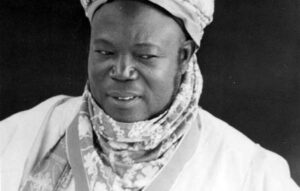
He was born in Rabba, Sokoto state. He was the leader of the Northern Peoples Congress. Sir Ahmadu Bello got scholarship to study Local Government Administration in England. He saw to the modernisation and unification of the various groups and people in Northern Nigeria. The Ahmadu Bello University in Zaria, Kaduna state was named after him.
5. Chief Obafemi Awolowo (March 6, 1909 – May 9, 1987)
Chief Obafemi Awolowo, also known as Awo, (born March 6, 1909, Ikenne, Colony and Protectorate of Southern Nigeria —died May 9, 1987, Ikenne, Nigeria), Nigerian statesman who was a strong and influential advocate of independence, nationalism, and federalism. He was also known for his progressive views concerning social welfare.
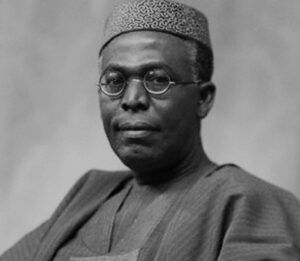
He studied law at the University of London. He was made the federal commissioner for finance between 1967 and 1971. He was the Premier of Western Region from October 1, 1954 to October 1, 1960. Chief Obafemi Awolowo formed the Action Group (AG). He was the presidential candidate of the Unity Party of Nigeria (UPN). The former University of Ife in Osun state, was named after him as Obafemi Awolowo University (OAU).
6. Sir Anthony Enahoro (July 22, 1923 – December 15, 2010)
Chief Anthony Eromosele Enahoro (22 July 1923 – 15 December 2010) was one of Nigeria’s foremost anti-colonial and pro-democracy activists. He was born the eldest of ten children in Uromi in the present Edo State of Nigeria. He joined the Movement for National Reformation during his youth.
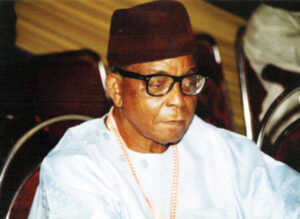
He was educated at King’s College, Lagos. He was the editor of the Southern Nigerian Defender newspaper, where he became Nigeria’s youngest editor at 21 years. He was the editor of Zik’s Comet in Kano. He became the Associate Editor of West African Pilot, Lagos from 1945 – 1949. He was Editor-in-Chief, Morning Star from 1950 – 1953. Sir Anthony Enahoro was the first Nigerian to move the motion for Independence in 1953. Enahoro is regarded by many Academics and Nigerians as, “Father of Nigeria State.”
7. Mallam Aminu Kano (1920 – April 17, 1983)
Aminu Kano (1920—April 17, 1983) was a Muslim politician from Nigeria. In the 1940s he led a socialist movement in the northern part of the country in opposition to British rule. He is known with the popular, ‘Talakawa politics’ in Northern Nigeria. His political ideology was based on the poor’s welfare.
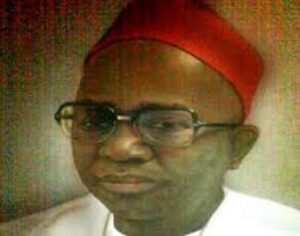
He was a staunch member of the Northern Element Progressive Union (NEPU). He was a teacher by profession. He studied at the University of London’s Institute of Education. Mallam Aminu Kano formed the Peoples Redemption Party (PRP). He was the Presidential candidate under PRP during the 1979 general elections. The Aminu Kano Teaching Hospital (AKTH) and Aminu Kano Airport, both in Kano state were named after him.
8. Chief Ladoke Akintola (July 10, 1910 – January 15, 1966)

Ladoke Akintola
Chief Samuel Ladoke Akintola was a politician, lawyer, journalist, and administrator. He was the Premier of the Western Region and the Aare Ona Kakanfo (generalissimo) XIII of Yorubaland. He was one of the founding fathers of modern Nigeria.Born in Ogbomosho, Oyo State, on July 10, 1910, Akintola briefly attended CMS School, Minna, before returning to Ogbomosho in 1922 to finish at the Baptist Day School.
He attended Oxford University where he studied Law on a British Council Scholarship in 1946. Chief Ladoke Akintola was made the minister of Health in 1953. In 1959, Akintola became Premier of the Western Region. At the Federal level, he served as Minister for Health and later for Communications and Aviation. He was the first leader of the opposition party in the federal parliament. He was also the first minister of Labour. He was the first post-Independent Premier of Western Region. The Ladoke Akintola University in Ogbomosho, Oyo state was named after him.
9. General Murtala Mohammed (November 6, 1938 – February 13, 1976)
General Murtala Ramat Muhammed (November 8, 1938–February 13, 1976) was a military ruler (Head of the Federal Military Government) of Nigeria from 1975 until his assassination in 1976. He is widely recognized as a hero in the country.
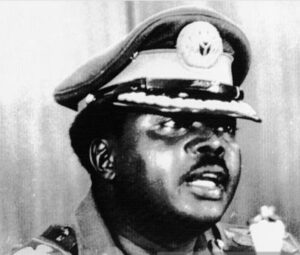
He attended Barewa College, Zaria in Kaduna state. He was the General Officer Commanding 2nd Division, Ibadan (August, 1967 – May 1968). He is known to have been the one who introduced the phrases, “fellow Nigerians” and “with immediate effect” into the national vocabulary. He played a major role in the independence of Angola and contributed a lot to making Africa unite and speak with one voice. General Murtala Mohammed International Airport, Lagos was named after him.
10. Pa Michael Adekunle Ajasin (November 28, 1908 – October 3, 1997)
Michael Adekunle Ajasin was born in Owo, Ondo State on 28 November 1908. He attended St. Andrews College, Oyo between (1924–1927). He worked as a teacher for some time, then was admitted to Fourah Bay College, Sierra Leone in 1943, obtaining a Bachelor of Arts degree in English, Modern History and Economics in June, 1946. Following that, he went to the Institute of Education of the University of London where he obtained a Post Graduate Diploma in Education in June, 1947.
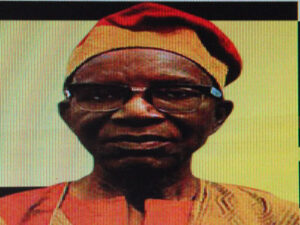
On 12 September 1947, Ajasin was appointed Principal of Imade College, Owo, where he initiated an aggressive staff development program, including sending teachers to university College, Ibadan for further training. In 1951 he wrote a paper that was to become the educational policy of the Action Group party, advocating free education at all levels. He was one of the founders of the party, whose other policies included immediate independence from Britain, universal health care, and abolition of want through effective economic policies. In December 1962, he left Imade College to become founder, proprietor and first principal of Owo High School from January 1963 to August, 1975.
Ajasin was involved in Nigeria’s pre-independence politics. In the 1950s, he was a national vice president of the Action Group, became an elected ward Councillor and then chairman of Owo district council. He was also elected to the Federal House of Representatives in Lagos. He was a federal legislator from 1954 to 1966 before the military took over government. Ajasin was elected governor of Ondo State in 1979. He led many political struggles during the military years. He was once the leader of National Democratic Coalition (NADECO) and Afenifere, the Yoruba socio-cultural group. The Ondo State University which was founded in 1982 was been re-named after him as Adekunle Ajasin University.


